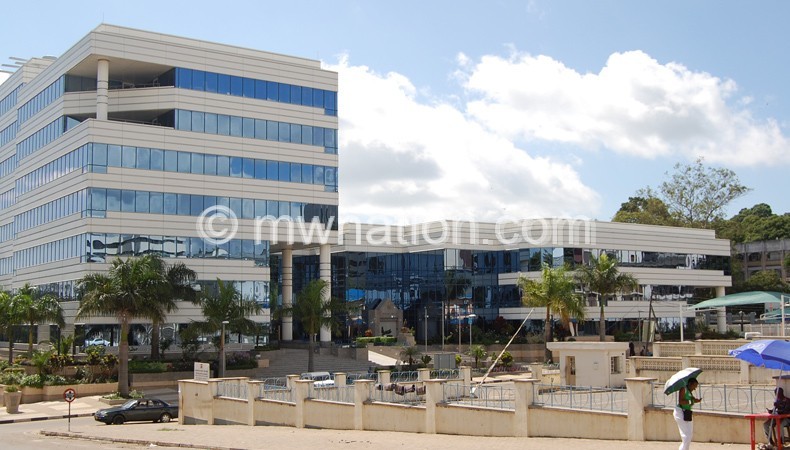RBM policy changeraises liquidity levels
The Reserve Bank of Malawi (RBM) change of policy to remove vault cash from the calculation of Liquidity Reserve Requirement (LRR) has raised market liquidity levels, according to the central bank’s latest report.
The RBM in its January 2014 economic review has said the removal of vault cash from the composition of LRR meant that banks had to deposit more funds into their main accounts held with RBM and therefore had an effect of considerably improving the banking system liquidity as measured by the level of excess reserves.

According to the report on average excess reserves increased to K9.3 billion (US$22 572 815.5) per day in January 2014 from K4.1 billion (US$9 951 456) recorded during December 2013.
The RBM in December last year introduced new liquidity measures including a facility for cash-strapped banks and changed the composition of the LRR to contain eminent risks to inflation RBM.
The Monetary Policy Committee (MPC) maintained the LRR at 15.5 percent but decided that vault cash would not count as part of the ratio and that eligible financial institutions will be required to maintain a minimum of 12 percent of the revised requirement.
The RBM explained that the changes were effected because vault cash would not be immediately verified by the central bank.
But recently the IMF noted that inflation fall is being complicated by the expansion of liquidity associated with RBM purchases of foreign exchange.
Inflation slowed to 24 percent in March 2014 according to the National Statistical Office (NSO) and the IMF targets a single digit inflation by end of period this year from 25.1 percent in December’ 2013.
Liquidity levels increased last week increased to average K14.5 billion (US$35 194 174.8) a day from a daily average of K7.7 billion (US$18 689 320.4) in the previous week while borrowing between banks averaged K1 billion per day in the week ending 25 April 2014, decreasing from K3.58 billion (US$8 689 320.4) per day in the previous week.
However, the last IMF warned that the country’s high liquidity levels which is as a result of RBM forex purchases may frustrate inflation fall.






Every economic policy in Malawi is fundamentally wrong!! I do not know why. Is it because people think Malawi can never develop so underdevelopment to them is a destination not a journey. The state of economic under development must be viewed as a transient state that the country must quickly move away from.
The right policy must be to release money into the economy so it can stimulate economic growth and productivity activities. What is the merit of banks seating on high levels of liquidity? Banks should transfer money to productive industries to grow the Q in MV = PQ. Increased supply of locally produced goods will automatically tackle prices directly shrinking Prices (P) also known as inflation. Starve M by stopping printing money is a better approach for RBM. Now these monetary policies of high liquidity reserve requirement (LRR) pegged at 15.5% and the removal of vault cash (or cash banks use for their daily operation to pay for cheques and deposits) is a counter development policy that contributes zilch to the expansion of Q in the above equation. These policies are tying up working capital in liquidity reserves instead of freeing the money to be loaned out to finance small businesses expand and grow thereby creating jobs and wealth for ordinary Malawians to tackle poverty. Adopt risk mitigation strategies that do not compromise the drive to promote investment.
I have no idea who these economic policy makers are and where they get these weird, funny and obviously wrong concepts from. Please reverse them to help Malawi economy boom!! Use other modern strategies to tackle inflation. Let monetary policy promote local investment not de-incentivise investment by starving the economy of investment cash so banks can sit on it in reserves.
The absurdity of this policy can be better appreciated by comparing it to a Malawi national football coach who puts more players on the bench and only 6 on the field. He does not understand why the team is always losing. Please help Malawi to win by fielding full strength team. Keeping high levels of stock in anything has long been discredited as bad practice. Just ask the Japanese just in time (JIT) concept.